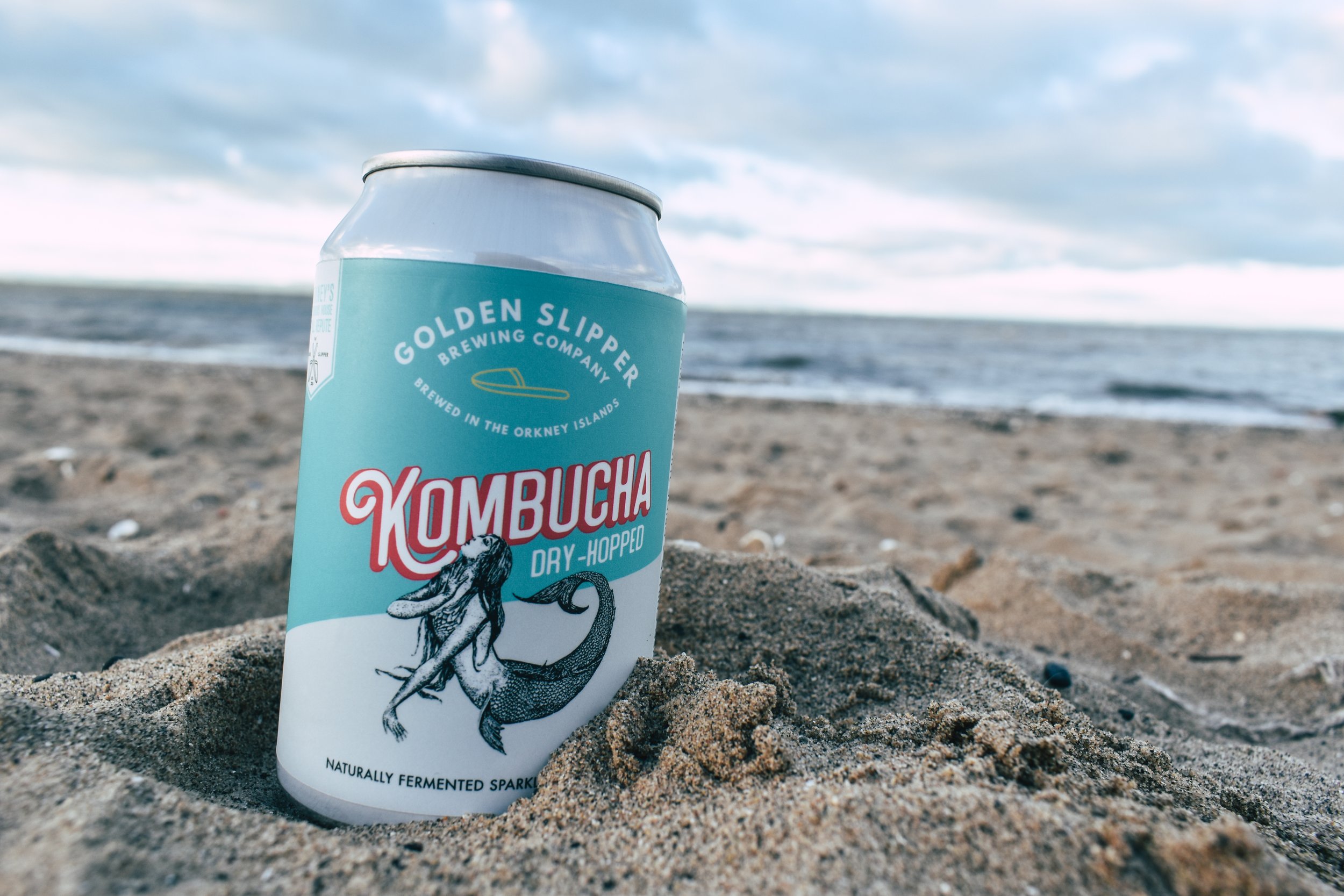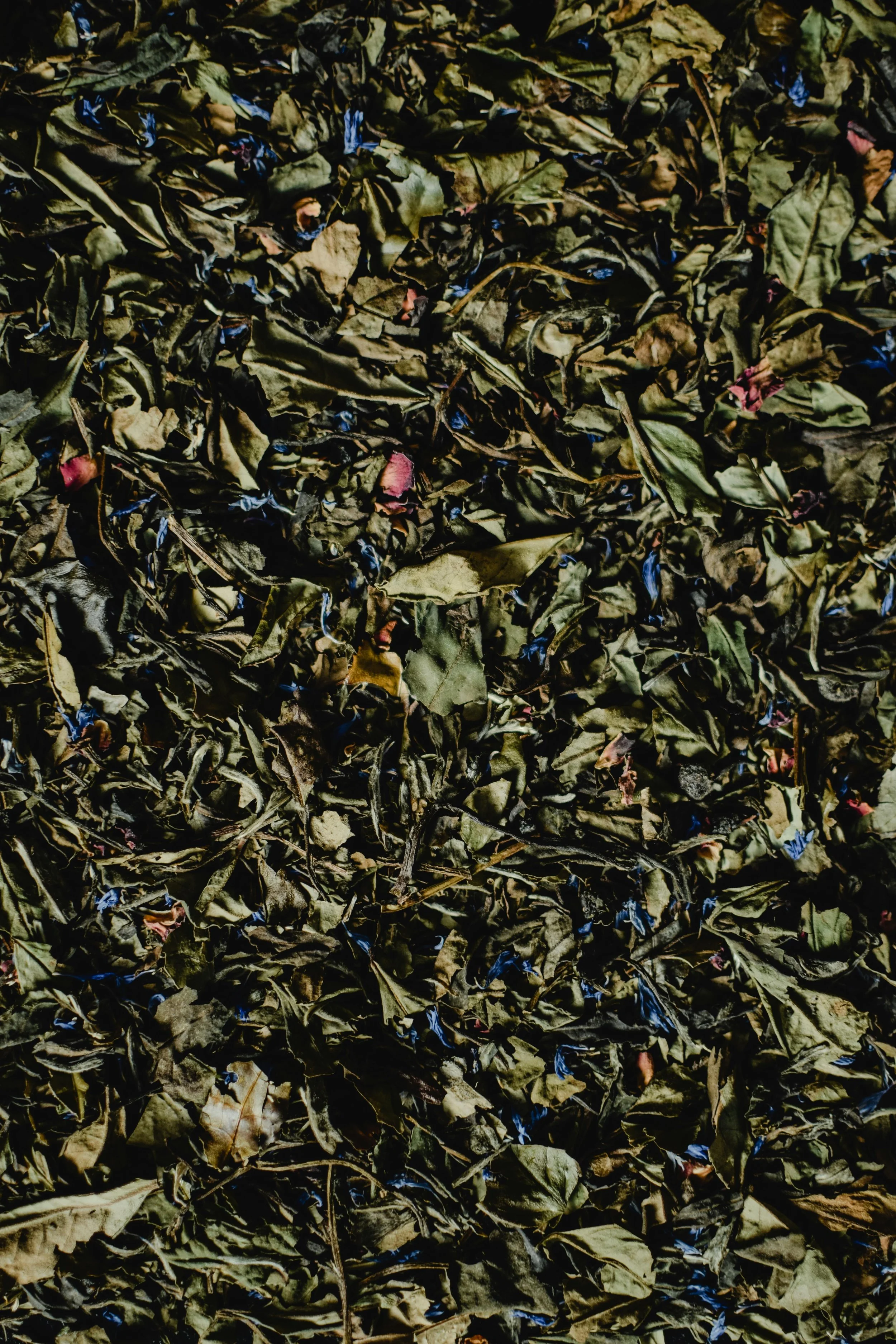OUR RANGE OF KOMBUCHA
A fermented tea drink with probiotics, antioxidants and vitamins for the support of your gut health and wellness. Brewed only with the finest, ethically sourced teas, using fresh and local ingredients from Orkney’s natural larder.
-
Matricaria discoidea, commonly known as pineappleweed is a herb. They bear distinctive conical flower heads which look remarkably like tiny pineapples. When the leaves are crushed, its possesses a lovely pineapple smell.
-
Pineapples, citrus fruits such as lemon.
-
Floral, delicate, calming.
Floral, delicate and calming. Infused with pineappleweed (or wild chamomile), our Pineappleweed Kombucha is bright and citrusy with notes of pineapple and lemon.
PINEAPPLEWEED
-
Kelp is a seaweed rich in vitamins, minerals, antioxidants, and fiber. It naturally has glutamates, making it a common flavor enhancer. Grows in underwater forests.
-
Umami & a touch of salty brine
-
Dry, crisp, vibrant
Dry, crisp, and vibrant. Infusing sea kelp gives our Sea Kelp Fizz notes of umami and a touch of salty brine that compliments the natural sweetness of this bone-dry Kombucha.
SEA KELP FIZZ
-
El Dorado hops are a type of hop from CLS Farms in Moxee Valley, Washington, USA, first introduced to brewers in 2010.
-
Boasts bold tropical and stone fruit notes like pineapple, mango, and peach
-
Citrusy, hoppy, refreshing
DRY-HOPPED
Our dry-hopped Kombucha presents itself with a refreshing twist, drinking surprisingly like a beer. It boasts bold and intense tropical and stone fruit notes that tantalize your palate.
-
Nanling Mountain Milk Oolong Tea is hand-plucked with care from the lush, verdant mountains of Fujian Province, China, ensuring that every sip captures the essence of its pristine, natural environment. Notes of floral orchids.
-
Creamy milk mouth-feel with delightful notes of floral undertones and hints of vibrant orchids.
-
Creamy, floral, balanced
Shining a light on Nanling Mountain Milk Oolong Tea. Possesses a delightful sweet and creamy mouth-feel complemented by beautiful notes of floral orchids that dance on the palate.
NANLING MOUNTAINS
“The newly launched Golden Slipper Brewing Company's versions are superb examples, the best I've ever tasted: flavoursome but with a perfect balance of fruity sweetness and refreshing acidity.” — Duncan McLean,
DIary of a Shopkeeper
KOMBUCHA
FAQs
-
No one knows exactly how kombucha came to be. Some argue that the first kombucha appeared in south-eastern China approximately 5000 years ago, where its roots can be traced back to ancient traditions. Later, this unique beverage made its way to Russia, where it is referred to as “tea kvass,” celebrated for its health benefits.
Legend has it that the first kombucha was born by accident, originating in a cup of sweet tea that was carelessly left on a windowsill. Over time, yeast settled in, forming a gelatinous film that began consuming the sugar, eventually acidifying the tea and creating what we now recognize as a “scoby”.
-
Kombucha's unique and special taste, along with its numerous health advantages, derive from the mighty SCOBY, which is a fascinating living culture. This gelatin-like disc, often referred to as "mother" in the brewing community, is a dynamic mix of specific strains of bacteria and yeast that work together to transform sweetened tea into the effervescent kombucha we know and love. Extended fermentation of the kombucha not only heightens the sourness but also enhances the distinct vinegar flavors, as the bacteria present in the SCOBY effectively convert sugar into acetic acid during this process.
-
Our base ingredients for our Kombucha are: Orkney Water, Organic Cane Sugar, Nanling Mountain Milk Oolong Tea, Fermentation Culture
We currently have four different infusions available to try:
Pineappleweed (or Wild Chamomile)
Sea Kelp Fizz (Sea Kelp)
Dry-Hopped (El-Dorado Hops)
Nanling Mountains (Original) -
Kombucha is a remarkable beverage that is loaded with an impressive array of health benefits. It is known for being probiotic, which makes it incredibly beneficial for gut health, in addition to being full of powerful antioxidants, essential vitamins, and crucial minerals. When infused with various other ingredients, Kombucha not only retains its own beneficial properties but also absorbs and enhances the health benefits of those added elements as well.
An interesting legend surrounds this fascinating drink: In 415 AD, a doctor hailing from the Kingdom of Sylla (modern-day Korea) received an invitation to treat the ailing Japanese Emperor Ingyō. This skilled physician would have utilized a specially fermented tea as part of his treatment to cure the sick emperor. The doctor’s name was Komu-ha, and it is believed that the suffix “cha,” which means tea in Japanese, would have been added to honor him, leading history to refer to it as “kombu-cha,” or “Doctor Komu’s tea.”
You can read more legends and about the origin of Kombucha by reading this fantastic article written by RevolutionFermentation.com
-
Kombucha is a living drink. If unopened, Kombucha can last anywhere from 6-8 months. If opened, we recommend drinking Kombucha fresh (and chilled). Otherwise, the shelf-life is 2 days maximum.
-
Non-alcoholic! The unique method employed for brewing our beverages allows for the precise control of the alcohol content, ensuring it meets our standards. Most Kombuchas, including ours, typically maintains an alcohol by volume (ABV) ranging from around 0.3% to 0.5%, which, for all intents and purposes, is considered non-alcoholic. However, it’s worth noting that “hard Kombucha” does exist and is steadily gaining popularity among enthusiasts seeking a different kind of beverage experience.
OF ILL REPUTE










